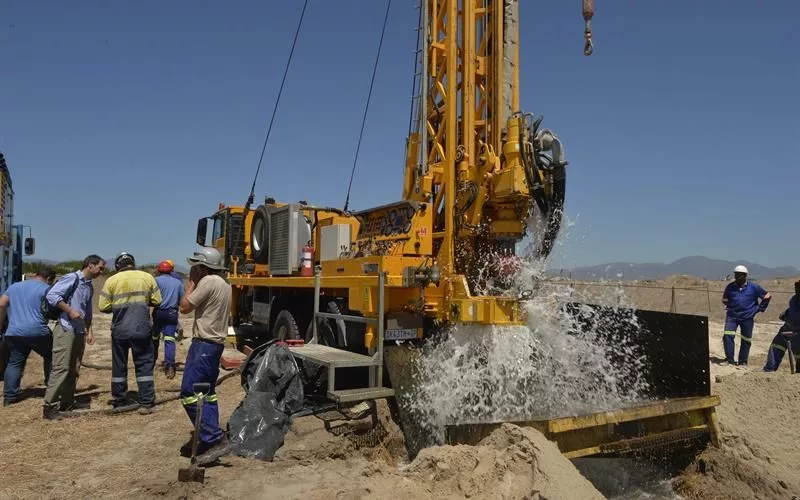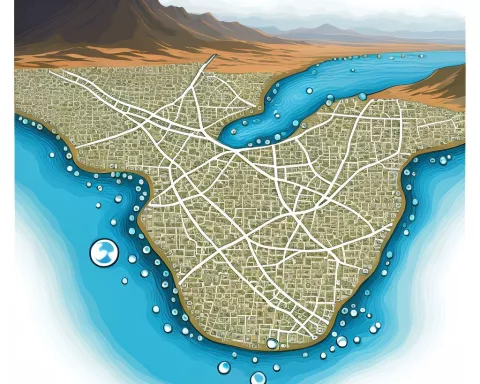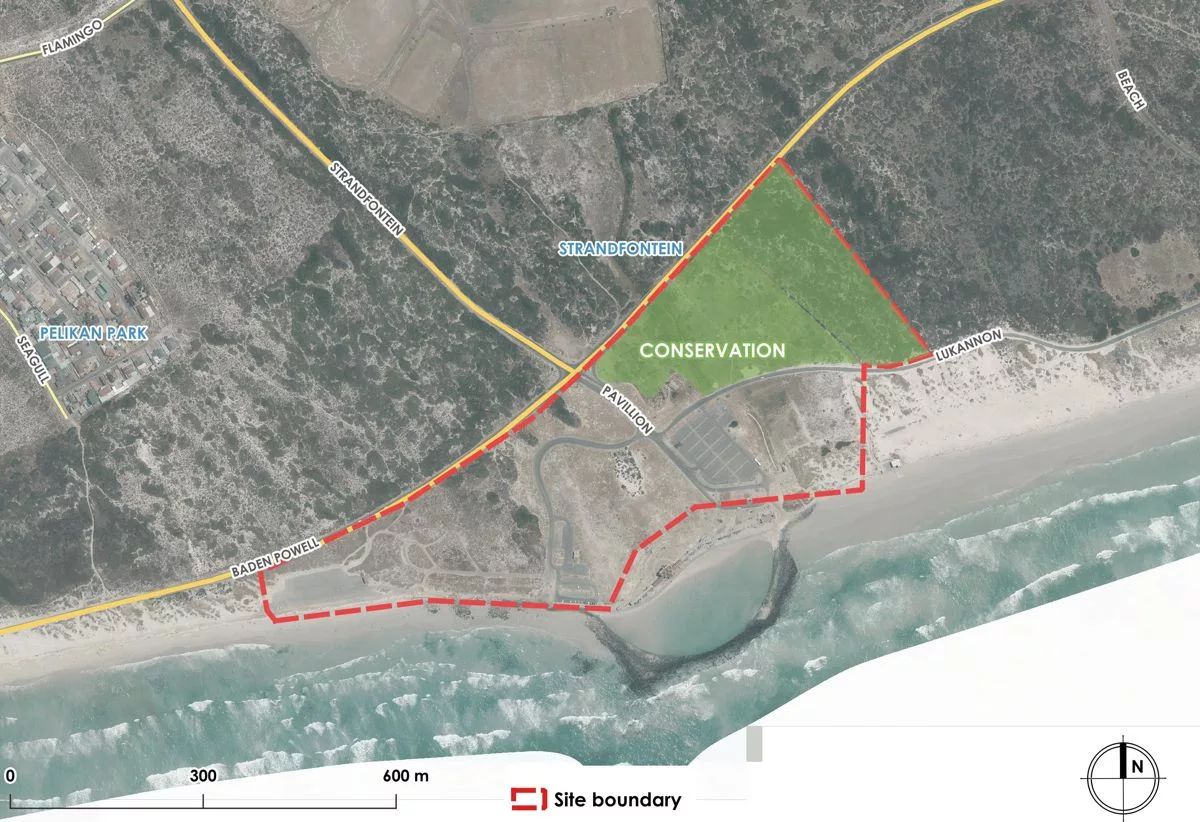Cape Town is taking a proactive approach to water security by diversifying its water sources and implementing cutting-edge technologies for water recycling and desalination. The New Water Programme aims to boost daily water supply by 300 million litres by 2040 through various strategies, including invasive plant species clearance and groundwater exploitation. Citizen engagement is also critical to strengthening the city’s water resilience. With escalating challenges sparked by climate change and urbanisation, Cape Town’s efforts reflect resilience, adaptability, and the power of collective action.
What is Cape Town’s approach to water security?
Cape Town is working towards water security by diversifying its water sources and introducing cutting-edge technologies for water recycling and desalination. The City’s New Water Programme aims to boost daily water supply by 300 million litres by 2040 through water reuse, desalination, invasive plant species clearance, and groundwater exploitation. Citizen engagement is also a critical component of the initiative to strengthen the city’s water resilience.
Water, the lifeblood of our existence, has always been an essential part of our lives, providing sustenance, rejuvenation, and ensuring our survival. The bustling metropolis of Cape Town witnesses a staggering daily consumption of 932 million litres, highlighting its significance. With escalating challenges sparked by climate change and burgeoning population, gaining clarity about the path forward is imperative.
Section 1: Current Water Supply and Challenges
Cape Town’s water supply currently consists of a mixture of surface and groundwater, processed meticulously in advanced facilities to guarantee its quality. As the winter season approaches, dam levels show an encouraging 65%, an improvement from the previous year’s 58.6%. Yet, past drought incidents teach us about the unpredictability of natural water cycles. Despite the astonishing resilience of nature, climate change and urbanisation put the stability of the water cycle in jeopardy.
Climate change intensifies weather extremities, resulting in droughts, floods, and unexpected rainfall. Urbanisation magnifies these problems. Rain, a crucial restorer of our water sources, often falls outside our dams and catchment areas, while the parts that reach our rivers traverse a hazardous journey through a contaminated urban environment.
Section 2: Ensuring Safe Drinking Water and Future Preparedness
The City is dedicated to providing safe drinking water to its inhabitants. This commitment is reflected in the treatment of all water collected in advanced plants, which is then extensively tested at several sampling points to adhere to the national SANS 241 standards.
To secure future water availability, the City has designed a strategic Water Strategy. Its aim is to diversify our water sources and introduce cutting-edge technologies for water recycling and desalination. These modifications could potentially contribute an extra 120-170 million litres per day to our supply.
Section 3: The City’s New Water Programme (NWP)
The City’s New Water Programme (NWP) is a forward-thinking initiative designed to boost Cape Town’s daily water supply by an impressive 300 million litres by 2040. The four strategic elements of this programme include:
- Water Reuse: The use of purified recycled wastewater is expected to contribute 70ML/d to 100ML/d.
- Desalination: The removal of salt from seawater is predicted to provide 50ML/d to 70ML/d.
- Invasive Plant Species Clearance: Efforts to extract water from rivers through the elimination of invasive plant species and various management interventions could contribute an extra 40ML/d.
- Groundwater: This strategy involves drilling boreholes and exploiting springs to secure over 100ML/d.
These elements are not just theoretical but are already taking shape in real projects. The Zandvliet Wastewater Treatment Works upgrade, a R2 billion investment, and the Cape Flats Aquifer project, supported by about R2.6 billion, are progressing well.
Section 4: Future Plans and Citizen Engagement
However, the journey ahead is a long-term commitment and will be gradually implemented. To ensure the city’s residents are an integral part of this endeavour, planning for educational engagements is underway. These platforms aim to address worries, answer questions, and inform citizens about the introduction of water recycling and desalination initiatives.
As Councillor Zahid Badroodien, Mayoral Committee Member for Water Sanitation aptly said: “The City will persist in phasing in other components of the programme in the long-term, to see our plan become a reality.”
The future of Cape Town’s water supply lies not only with City officials but also with its residents. By staying informed and actively participating in these educational engagements, each citizen can play a role in strengthening the city’s water resilience.
Undeniably, water is a valuable resource. The city’s efforts to diversify its sources go beyond mere necessity. They reflect the foresight and resilience of a city that refuses to succumb to the pressures of climate change and urbanisation. As we continue to satisfy our thirst with this vital resource, let’s also absorb the lessons it imparts about resilience, adaptability, and the power of collective action.
1. What is Cape Town’s approach to water security?
Cape Town’s approach to water security involves diversifying its water sources and introducing cutting-edge technologies for water recycling and desalination. The City’s New Water Programme aims to boost daily water supply by 300 million litres by 2040 through water reuse, desalination, invasive plant species clearance, and groundwater exploitation.
2. What are the challenges faced by Cape Town in ensuring safe drinking water and future preparedness?
Cape Town faces challenges such as climate change and urbanisation which affect the stability of the water cycle. These challenges intensify weather extremities, resulting in droughts, floods, and unexpected rainfall. Urbanisation magnifies these problems, and rain often falls outside the dams and catchment areas.
3. What is the New Water Programme, and what are its components?
The New Water Programme (NWP) is a forward-thinking initiative designed to boost Cape Town’s daily water supply by 300 million litres by 2040. The four strategic elements of this programme include water reuse, desalination, invasive plant species clearance, and groundwater exploitation.
4. How is citizen engagement critical to strengthening Cape Town’s water resilience?
Citizen engagement is critical to strengthening Cape Town’s water resilience as every citizen can play a role in this endeavour. Planning for educational engagements is underway to address citizens’ worries and answer questions about the introduction of water recycling and desalination initiatives.
5. What is Cape Town doing to ensure safe drinking water?
Cape Town ensures safe drinking water by treating all water collected in advanced plants, which is then extensively tested at several sampling points to adhere to the national SANS 241 standards.
6. What are future plans for Cape Town’s water security?
The city is committed to phasing in other components of the New Water Programme in the long-term to see the plan become a reality. Planning for educational engagements is also underway to inform citizens about the introduction of water recycling and desalination initiatives.












